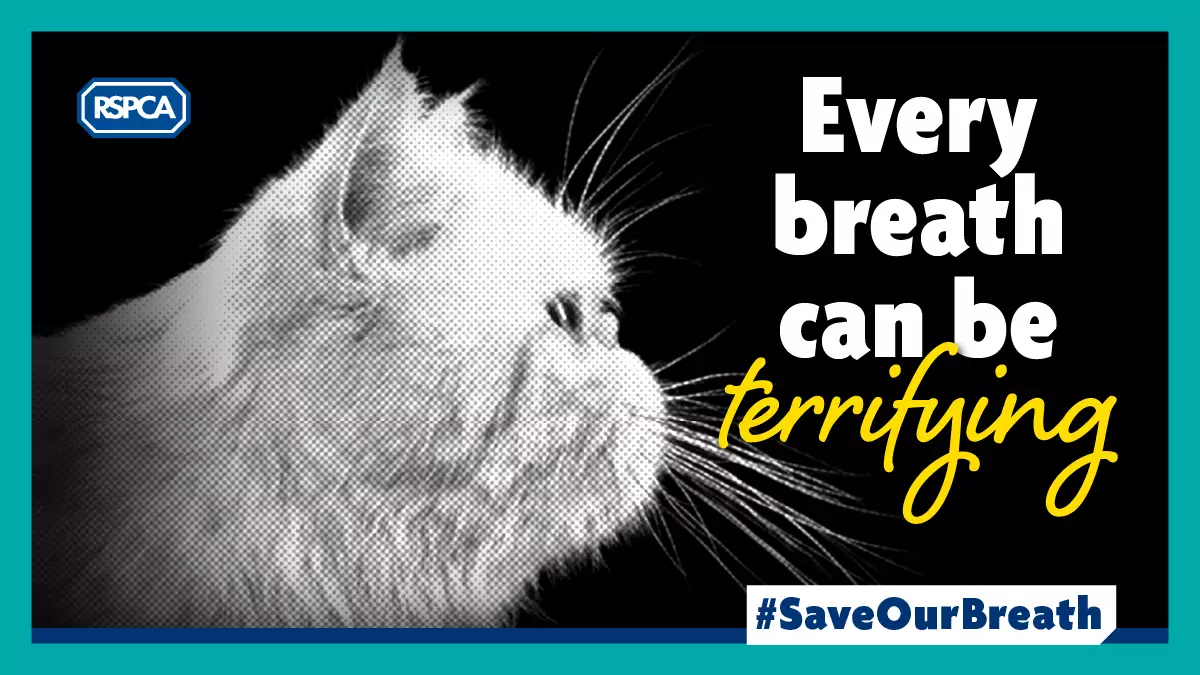In recent years, the rising popularity of flat-faced cat breeds has sparked concern among animal welfare advocates. The RSPCA has reported an alarming 92% increase in Persian cats entering their care from 2018 to 2022, a reflection not only of the breed’s aesthetic appeal but also of the grave health implications that come along with these physical traits. Breeds such as Persians, British Shorthairs, Himalayans, and Exotic Shorthairs fall under the category known as brachycephalic—a term that refers to pets with short noses and flattened faces. While many owners find these features charming, the reality is that they frequently lead to serious health problems, including respiratory issues and various other complications, demonstrating a critical need for public awareness and better breeding practices.
The allure of flat-faced cats may overshadow the fact that their physical attributes often result in suffering. Brachycephalic cats experience a range of health challenges due to their genetic modifications—a direct consequence of selective breeding practices that prioritize appearance over well-being. Common ailments include respiratory distress, ocular disorders, difficulty grooming, and complications arising during birthing. The physical structure of these cats compromises their natural ability to breathe, which can not only be discomforting but also severely restricts their quality of life.
Alice Potter, a cat welfare expert at the RSPCA, emphasizes the need for a paradigm shift in breeding. The perception that these cats are “cute” based on their flattened features, often exacerbated by platforms like social media, can lead potential owners to overlook the serious health implications tied to such appearance standards. As Potter reflects, “Breeding for features which compromise basic health and welfare is wrong.” Awareness campaigns focusing on the consequences of this trend are essential to ensuring the welfare of these beloved pets.
Darius, a feline whose story recently came to light through the RSPCA, is a poignant example of the ongoing struggles faced by flat-faced cats. After being abandoned in Cambridgeshire, this Persian cat arrived at the charity weighed down by matted fur and respiratory difficulties. Initially suspected to have a nasal infection, it became clear that Darius’s breathing problems stemmed from the anatomical constraints of his flattened facial structure.
Despite medical assessments indicating that surgical options to alleviate his condition posed significant risks, the efforts made by the RSPCA ensured a more comfortable existence for Darius. He was placed in foster care, where an ongoing regimen of medication and loving care allowed him to cope with his health issues. Yet, the day-to-day struggle of simple activities—eating and playing—remains a constant challenge for him, demonstrating the stark reality of the lives many flat-faced cats lead.
Further underscoring the issue, the stories of Molly and Heathcliff also resonate with those familiar with the challenges that accompany these breeds. Seven-year-old Molly was relinquished due to her owner’s inability to care for her. This sweet-natured cat suffers from respiratory complications and is prone to recurring eye problems. Her love for grooming makes her a bit easier to care for, yet managing her specific needs requires a level of commitment that not all prospective owners may realize.
Heathcliff, a 12-year-old who ended up at an RSPCA facility after his elderly owner could no longer provide for him, also faces challenges in terms of daily eye cleaning and dietary restrictions. Life as an older flat-faced cat presents its own set of trials, yet both Molly and Heathcliff exhibit resilient and joyous personalities despite their circumstances. Their narratives remind us that embracing aesthetics over health can lead to problems that affect the well-being and happiness of these feline companions.
The increasing number of brachycephalic cats entering rescue centers highlights a pressing need for change in the way we perceive and breed these animals. The RSPCA is advocating for better awareness among future cat owners, breeders, and lawmakers regarding the health risks associated with flat-faced breeds. Their “Save Our Breath” campaign aims to educate the public and all stakeholders in the pet care community about the welfare of these cats.
As responsible pet owners, the community is urged to reflect on the implications of breeding trends, stressing that the health and happiness of animals must take precedence over appearance. Raising awareness among legislators is also a crucial step in promoting better practices, ultimately leading to healthier lives for our feline friends. Thus, it is vital to approach the trend of flat-faced cats with skepticism and compassion, prioritizing the welfare of these cherished animals above all else.


Leave a Reply